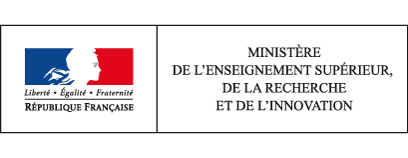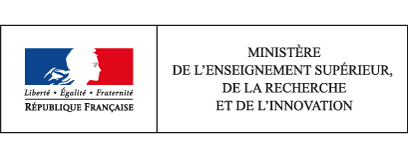19 student trajectories and pass rates in university bachelor's degrees, vocational bachelor's degrees and master's degrees
At university, 27% of students obtain their Bachelor's degree 3 years after enrolling in the first year and 39% after 3 or 4 years. These rates have changed little in recent years. Nearly three-quarters of Bachelor's degree graduates enrol on a Master's the following year. Pass rates for Master's degrees have significantly increased since 2007; around 53% of students now obtain their degree in two years and 65% in two or three years.
Just over a quarter of Bachelor degree students obtain their degree after three years: 27% of students enrolled in the first year of a Bachelor degree (L1) in 2011 achieved a degree after three years, in the 2014 session. One year later, the proportion grew by nearly half to reach 39%. Two years later, it reached 45% for students who enrolled in 2010 (table 19.01). These relatively low rates are essentially due to the many students who give up the course: 46% of students enrolled in L1 for the first time in 2011 were no longer enrolled on a Bachelor degree course two years later. Some of them had changed to other university courses (3%), mainly in IUT (2%), but the great majority had left university (43%) (table 19.02). These trajectories are not necessarily synonymous with failure as some of those leaving university change to other study programmes, such as STS, engineering, management, healthcare or arts schools.
The prospects for success on a Bachelor degree course are strongly linked to the type of baccalauréat held by the student: although over half of general baccalauréat holders achieved their Bachelor degree after three, four or five years, only 20% of technological baccalauréat holders and 8% of vocational baccalauréat holders did the same. Correlatively, technological and vocational baccalauréat holders are much more likely than general baccalauréat holders to give up their course before the third year: 85% of vocational baccalauréat holders and 71% of technological baccalauréat holders are no longer enrolled on a Bachelor degree course in the third year, compared with 35% of general baccalauréat holders (table 19.02).
The pass rate for students enrolled on a vocational Bachelor degree is high: 89% of students enrolled for the first time on a vocational Bachelor degree in 2013 achieved their degree at the end of the year (chart 19.03). This rate significantly exceeds the figures for the final year of a general Bachelor degree (78% of students enrolled for the first time in L3 were awarded their degrees within one year). The pass rate for vocational baccalauréat holders on a vocational Bachelor degree (87%) is not very different from that of general baccalauréat holders (91%). The difference in success between students preparing for DUT or STS, which each represent a quarter of the numbers, is also low: 94% for the former and 89% for the latter.
Nearly three-quarters of general Bachelor degree graduates enrol on a Master's the following year, including 11% on a teaching Master's (chart 19.04). Students are more likely to continue on a Master's course if they have a Bachelor degree in Law (86%), Fundamental Sciences or Life and Earth Sciences (over 78%) than other fields of education (between 62 and 71%).
Among those students enrolled for the first time on the first year of a Master's (M1) in 2012, 53% achieved their degree after two years and 65% with an additional year (chart 19.05). Only 56% of students enrolled for the first time on M1 in 2007 passed within two or three years. The increase is linked to a rise in the rate of transition from the first to second year of a Master's, going from 53% to 60% between the 2007 and 2012 cohorts (chart 19.06).
How to cite this paper :
close
19.01 Changes in pass rate in three, four and five years in Bachelor degree (%)
1 As the qualification results for the 2016 session are not yet known, the data are unavailable.
You can embed this table to your website or your blog by copying the HTML code and pasting it into the source code of your website / blog:
close
19.02 What becomes of entrants in L1 third year in 2012-13 based on original baccalauréat
65.3% of students who took a general baccalauréat are still enrolled in a Bachelor degree in the third year of observing the cohort. 39.5% are enrolled in third year of Bachelor degree (general or vocational).
You can embed this table to your website or your blog by copying the HTML code and pasting it into the source code of your website / blog:
close
19.03 Pass rate in one or two years in vocational Bachelor degree of students enrolled for the first time in vocational Bachelor degree in 2013-14 according to the course taken the previous year
You can embed this chart to your website or your blog by copying the HTML code and pasting it into the source code of your website / blog:
close
19.04 Proportion of 2015 graduates in general Bachelor degree continuing with a Master's according to the discipline in which the Bachelor degree was obtained
You can embed this chart to your website or your blog by copying the HTML code and pasting it into the source code of your website / blog:
close
19.05 Changes in Master's pass rate in two years and three years (%)
1 The qualification results for the 2016 session are not yet known, therefore nor is the pass rate in three years for entrants in M1 in 2013.
You can embed this chart to your website or your blog by copying the HTML code and pasting it into the source code of your website / blog:
close
19.06 What becomes of entrants in M1 second year from 2007 to 2014 (%)
You can embed this chart to your website or your blog by copying the HTML code and pasting it into the source code of your website / blog:
close
Related statistical publications
 Note flash SIES 15 - Parcours et réussite aux diplômes universitaires - Isabelle Maetz - November 2016
Note flash SIES 15 - Parcours et réussite aux diplômes universitaires - Isabelle Maetz - November 2016 
 Note flash SIES 01 - University degree trajectories and pass rates: indicators from the 2014 session - Isabelle Maetz - February 2016
Note flash SIES 01 - University degree trajectories and pass rates: indicators from the 2014 session - Isabelle Maetz - February 2016 Translation
 Etat de l'enseignement supérieur et de la rechercheL'état de l'Enseignement supérieur et de la Recherche en France n°10 - Avril 2017
Etat de l'enseignement supérieur et de la rechercheL'état de l'Enseignement supérieur et de la Recherche en France n°10 - Avril 201719 - les parcours et la réussite en Licence, Licence professionnelle et Master à l'université - Isabelle Maetz






